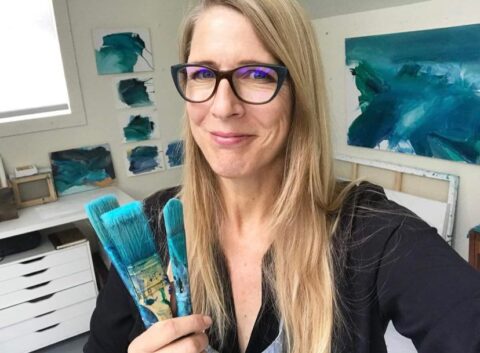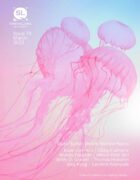Written initially from the perspective of a baby in the womb, this essay has such a fresh approach. I’d be interested to know how you got into the right mindset to write this one. I have to imagine the scent you describe in the last paragraph was a trigger.
Thank you! My mother’s stories about my birth have been churning in my head for years, but it wasn’t until during the hottest days of last summer, while making a family scrapbook, that this essay took shape. Seeing the old black-and-white and color photos of the Mad Men-era New York into which I was born was a sort of time travel for me—to a place and time which I obviously have no firsthand memory of, but which lives in my bones because of my mother’s vivid stories. It was her voice in my head that propelled me to write. The speeding train energy of the story reflects how she spoke (and lived): fast, urgent, without pauses, cramming in as much as possible—as if she might drop dead at any moment.
That acetone detail is awfully specific. Is this invented, or did she offer such a detailed story of your birth? And where do you stand on fictionalizing in nonfiction? This question would be offensive to some writers with their strict codes of truth/fact-telling.
Thanks to my mother’s habit of sharing everything about her life with no filter, and my own habit of writing things down while she was alive, all the details in the story are real. The only invention is when I compress time or make a composite of details or skip over parts. For instance, I left out that between New York and Cambridge we briefly lived in Toledo, Ohio, and then Alexandria, Virginia. But the part that matters—my mother’s transformation—isn’t altered by that omission. There are so many ways to approach creative nonfiction, I hesitate to declare any hard and fast rules. I think what’s most important, in memoir at least, is that you stick to the emotional truth of the story. Which of course varies with whoever is telling.
Was there any detail that was a starting point for you? They’re all so well chosen. Can’t believe we used to pluck out babies with forceps.
No kidding! In fact, the starting point for this story was that hospital scene. My mother had described it to me so many times, I felt as if I was there (well, I was, just not consciously!). As a kid I was terrified by the image of Satan laughing at her during my birth. Later I would joke that that’s probably why I ended up playing in a rock band.
Tinker Bell is wonderful here—sort of a symbol of a life that could have been. Who is your life’s Tinker Bell?
Thank you! I guess Tinker Bell for me would be any young woman who feels free to choose a different path than marriage and motherhood. As amazing as my mother was, and as much as she accomplished in spite of many obstacles, I saw firsthand how being a mother thwarted her creative dreams for herself. For instance, she wanted to study art in Paris, but as a single mom with two kids and no money, that was not an option. It makes sense that I later moved to Paris and became a painter. She imprinted my dreams with her own.



 The SmokeLong Grand Micro Contest (The Mikey) is now an annual competition celebrating and compensating the best micro fiction and nonfiction online.
The SmokeLong Grand Micro Contest (The Mikey) is now an annual competition celebrating and compensating the best micro fiction and nonfiction online.